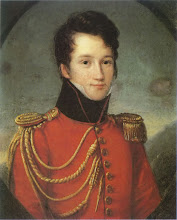Work in progress:
excerpt from Sow the Wind - a novel.
Chapter
XIII
As night fell, it was snowing again in Chang-an.
The air was thick with swarming flakes from a leaden sky. The city grew silent,
muffled in a white shroud. Temples Imperial Palace
When at last his weary horse slipped
and fell he knew he could ride no further. He seized the exhausted beast by the
bridle, pulled it to its feet and led it trembling through an open gate into
the haven of a courtyard. At first he though that the gate-keeper had not
challenged him because of the storm. Then he saw that the lodge was roofless
and the whole compound plunged in darkness. The mansion was falling into ruins.
He tethered his horse to a rotting pillar, out of the wind, and stumbled
through the drifts towards the icicle-hung veranda. As he did so, he noticed a
gleam of light at the west end of the courtyard. If a caretaker was still
living in this otherwise deserted house, he might find warmth and shelter
there. A dog was huddled in a corner of the veranda. He approached it
cautiously, but it did not stir. Its shaggy coat was stiff with frozen snow; it
stared at him balefully, though sightless eyes of yellow ice. Shivering, he rapped
on the door. Nobody answered, though he could still see the welcome gleam of
light against the engulfing dark. He hammered on the carved wood with numbed
hands, calling out loudly. Still no answer. In desperation, he lifted the latch
and found the door unlocked. A moment later he was standing in a deserted room
lighted by a single candle guttering in a bowl. The wind was whistling through
a jagged tear in the paper window, the candle flame flaring and dancing in the
draught, cast wild, ghostly shadows on the wall. His flesh crawled. Fox-spirits
made their lair in places like this, lying in wait for unwary travellers. But
not here, surely, for this was a shrine room where Amitahba Buddha and the
Bodhisattva Manjusri gazed at him from a darkened altar, though their faces
seemed curiously disfigured, and almost slyly malevolent. Snow had blown in
through the torn window and lay in gleaming drifts upon the floor. The face of
the Goddess of Mercy, Kuan-yin, was hidden by a white veil, for the sifting
snow had covered half her shrine.
Suddenly, he realised where he was.
The shock was so great that he began to tremble violently. This was her house!
Blinded by the storm, he had lost his bearing and had not recognised the now
derelict mansion in its pall of snow and ice. The last time he had seen it, the
trees had been decked in spring blossom, the courtyard athrong with grooms and
carriages. No wonder that he had not identified this desolate ruin as hers. Yet
he should have known it sooner, for in this very shrine room he had been
accustomed to spend hours in meditation. But then the altars had been ablaze
with light and the warm air thick with incense, where now all was darkness,
cold and musty decay.
When the candle went out he noticed
a faint lightening of the darkness at the top of the staircase leading to the
upper storey of the belvedere. He climbed the stairs cautiously, for they were
slippery with frost. At the top he paused, shivering with cold and fear, before
the closed doors of her chamber. For a long time he stood there waiting, not
daring to knock. Then, above the howling of the blizzard, he seemed to hear the
sound of laughter and the music of a lute, as though she was holding yet
another party. Emboldened, he pushed open the door only to find himself in a
darkened passage. Yet at the far end a glimmer of light was shining and the
sound of the lute had grown louder.
When he opened the door, he cried
out in despair A Tocharian girl with amber eyes was strumming a pi-pa and
singing a dirge. But the guests were not listening; they were watching Zhen-zhu
dance. Clad all in white, she was hanging by her silken sash from a beam, face
livid in death, swollen tongue lolling from her mouth, blue eyes glazed with
ice. As the night wind howled and scrabbled at the torn windows, sending the
snow-spume swirling across the room, she swayed to and fro like a broken
puppet, dainty slippers almost touching the floor.
Frantic with grief and horror he
rushed to cut her down. But the moment he touched her, she threw her arms
around him, while her guests watched silently and strangled him slowly with her
long, black hair.
As night fell, it was snowing again
in the frozen hell. The air was thick with swarming flakes from a leaden sky.
The city grew silent, muffled in a white shroud. Temples
COPYRIGHT (C) 2010 J D FRODSHAM




No comments:
Post a Comment